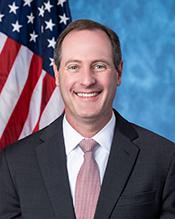0
Proposing a balanced budget amendment to the Constitution of the United States.
1/16/2025, 9:06 AM
Summary of Bill HJRES 10
The amendment would require Congress to pass a budget each year that does not result in a deficit, unless a three-fifths majority in both the House of Representatives and the Senate vote to allow for a deficit in certain circumstances, such as during times of war or national emergency.
Supporters of the Balanced Budget Amendment argue that it would help control government spending and reduce the national debt, which is currently over $28 trillion. They believe that a balanced budget requirement would force Congress to make tough decisions about spending priorities and prevent future generations from being burdened with excessive debt. Opponents of the amendment argue that it could lead to cuts in important government programs, such as Social Security and Medicare, and hinder the government's ability to respond to economic downturns or emergencies. They also point out that balancing the budget could be difficult during times of recession or when facing unexpected expenses. Overall, the Balanced Budget Amendment is a controversial proposal that has been debated in Congress for many years. It raises important questions about fiscal responsibility, government spending, and the role of the federal government in managing the nation's finances.
Congressional Summary of HJRES 10
This joint resolution proposes a constitutional amendment prohibiting total outlays for a fiscal year from exceeding total receipts for that fiscal year unless Congress authorizes the excess by a three-fifths roll call vote of each chamber. The prohibition excludes outlays for repayment of debt principal and receipts derived from borrowing.
The amendment requires a three-fifths roll call vote of each chamber to increase the public debt limit. It prohibits a bill to increase revenue from becoming law unless it has been approved by a majority roll call vote of each chamber.
The amendment also requires the President to submit an annual budget in which total outlays do not exceed total receipts.
Congress may waive these requirements due to a declaration of war or a military conflict that causes an imminent and serious military threat to national security.
Read the Full Bill
Current Status of Bill HJRES 10
Bipartisan Support of Bill HJRES 10
Total Number of Sponsors
10Democrat Sponsors
0Republican Sponsors
10Unaffiliated Sponsors
0Total Number of Cosponsors
33Democrat Cosponsors
0Republican Cosponsors
33Unaffiliated Cosponsors
0Policy Area and Potential Impact of Bill HJRES 10
Primary Policy Focus
Economics and Public FinancePotential Impact Areas
Alternate Title(s) of Bill HJRES 10
Comments

Desmond Cassidy
11 months ago
I think this bill is a good idea because it will help to ensure that our government is fiscally responsible and doesn't spend more money than it takes in. This is important for the future of our country and for the well-being of our citizens. It will also help to reduce the national debt, which is currently at an all-time high. I believe that this bill is necessary in order to secure a stable financial future for our country and for future generations.

Magdalena Gunter
10 months ago
I just don't understand why they wanna mess with this bill. It's gonna make things harder for folks like me who rely on government assistance. I'm already struggling to make ends meet, and this is just gonna make it worse. I wish they would think about how this is gonna affect people like me before they go and pass something like this. It's just not fair.





